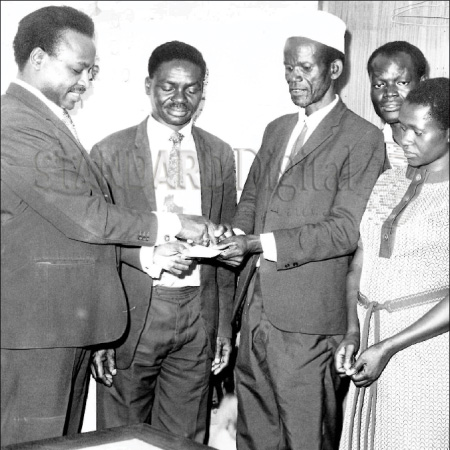×
The Standard e-Paper
Stay Informed, Even Offline
 |
| Happy giver: JM Kariuki (left) presenting a cheque to the Chairman of Orera Nursery School Kabando Kadhoch Association, Mr Jacob Osee, in 1974. [PHOTO: File/STANDARD] |
By KENNETH KWAMA
The late JM Kariuki was known for his oratorical skills. During his time, he coined the phrase “We do not want a Kenya of ten millionaires and ten million beggars.” But what most people don’t know is that Mr Kariuki was amongst the wealthiest Kenyans of his time.